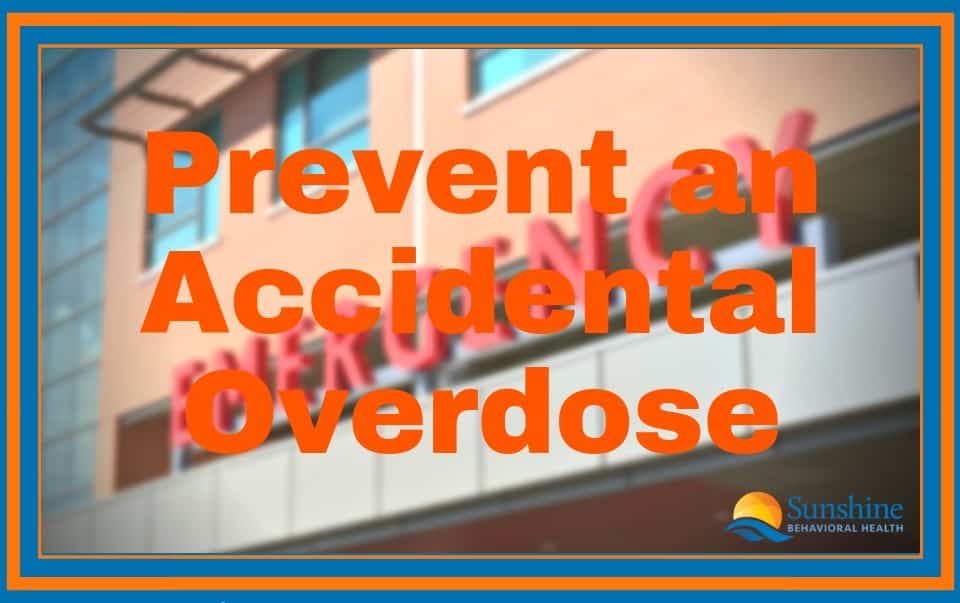
Addiction to prescription or illicit drugs, alcohol, and other substances lead to serious consequences. It alters both mental and physical health as well as your life in general. Getting hooked also means dependency on the substances to get through the day. However, is it possible to prevent an accidental overdose?
When a person needs to be under the influence to properly function, there is a huge possibility that everything else is neglected. Neglect for their well-being, the people around them, their interests, responsibilities, and repercussion for their actions. They become so consumed by the addiction that they take the substances to the extent that it becomes exceedingly perilous to them. This can result in one of the most dreaded situations for those with addiction – accidental overdose.
How Frequently Does Accidental Overdose Happen?
It is unfortunate to note that people struggling with addiction have the proclivity to suffer an accidental overdose. The Centers for Disease Control and Prevention reported a significant increase in deaths due to drug overdose from 2015 to 2016. The data further revealed that West Virginia has the highest rate of deaths due to OD. It had 52 deaths per 100,000 cases.
Prescription or an illicit opioid is the main cause of overdose. The death rate due to this substance is five times higher in 2016 than 17 years ago. The opioid is involved in 42,249 reported deaths in 2016.
A significant increase in deaths involving both sexes between 25 to 44 years old has also been noted. The same is true for non-Hispanic blacks and non-Hispanic whites.
This data only goes to show that a lot of people are not getting the help they need in terms of addiction.
Why Does It Happen?
Taking substances regularly can change the tolerance of the brain and body. Accordingly, both adjust their function and re-establish a new normal. This process makes the drugs less effective, so a person has to take larger quantities to experience its previous effects.
When an individual increases their drug intake, the risk of an overdose also increases.
Preventing Overdose
An overdose can be intentional in as much as it is not. Cliché as it may sound but the fact is people don’t realize just how bad their problem with addiction has become until it is too late. Given how prevalent accidental overdose is, preventing it from happening to reduce the ever-increasing statistics is the better option.
Here are some ways of how accidental overdose can be prevented:
1. Look for Signs of Addiction – Looking out for signs of addiction can help in early intervention and treatment. Help is immediately extended even before the worst-case scenario occurs. Don’t wait for a loved one or someone you know to lose themselves to substances. Educate yourself and be very observant.
2. Communicate – The benefits of open communication can’t be set aside when we’re talking about addiction and overdose. It is even critical in preventing untoward incidents from happening. If the person involved in drugs knows they can safely reach out to someone for assistance or to simply hear them out, there is a big chance that overdose can be prevented.
3. Stand Firm and Be Courageous to Talk – One of the hardest things anyone can do is to confront the people they love or know about their possible drug dependence. It is a tricky situation as you can come out as judgmental or nosy. If you start seeing signs of addiction, be courageous enough to talk and stand your ground. Let them know once again they are loved and supported which can be the reinforcement needed for them to seek help and not be on the verge of an overdose.
4. Counseling – You can provide much-needed assistance in trying to sort out a person’s issues and difficulties that led to addiction. Talking about the problem is a way of counseling them which can be useful in curbing overdose.
5. Treatment – The safest and most effective way is to end the addiction, and this can be done through treatment. There are many mental and physical issues associated with drug use which can be properly addressed when entering a rehab facility. Medical health professionals have the skill and experience to provide the necessary care as a person goes through the process. There is no better alternative to this.
Finding a Rehab Facility
If you, a family member, or someone you know is going through addiction, help is available. Each one has their own unique issues and struggles, and it is important to get the assistance that specifically caters to their need. A specially crafted course of medication and treatment is crucial to help them recover and maintain sobriety.
No matter where you might be in the United States, there are treatment centers near you that can accommodate your needs. You can also opt for a facility outside of your residence if you believe that this is a better option. Questions or concerns? If so, reach out to us today for more information.A Message From Our CEO
Medical disclaimer:
Sunshine Behavioral Health strives to help people who are facing substance abuse, addiction, mental health disorders, or a combination of these conditions. It does this by providing compassionate care and evidence-based content that addresses health, treatment, and recovery.
Licensed medical professionals review material we publish on our site. The material is not a substitute for qualified medical diagnoses, treatment, or advice. It should not be used to replace the suggestions of your personal physician or other health care professionals.





